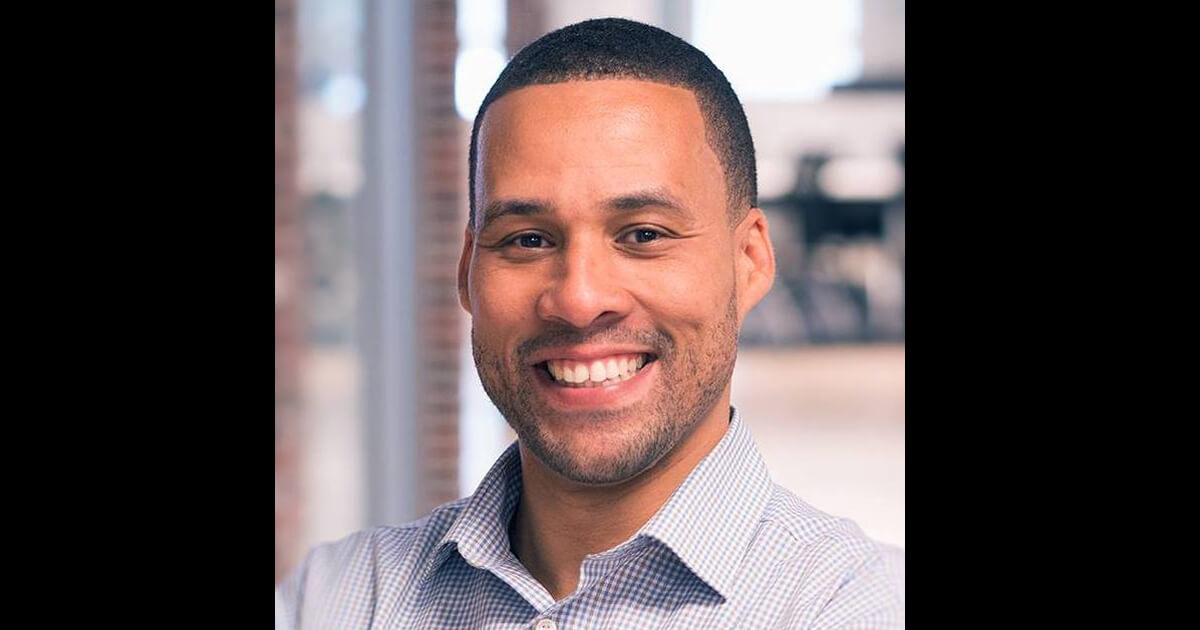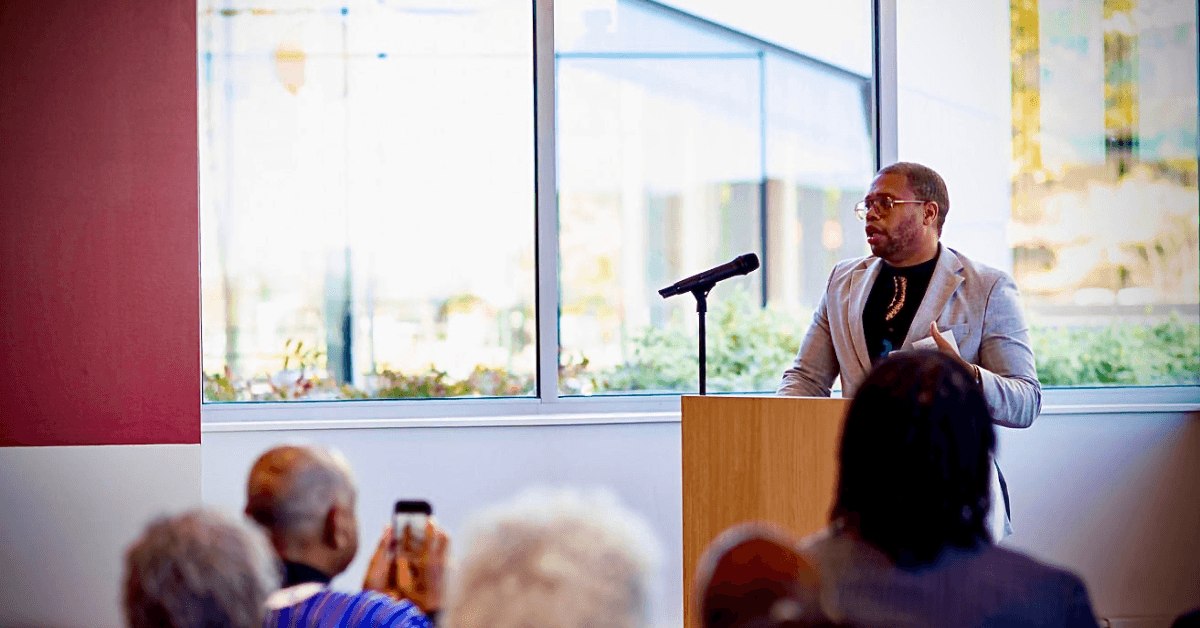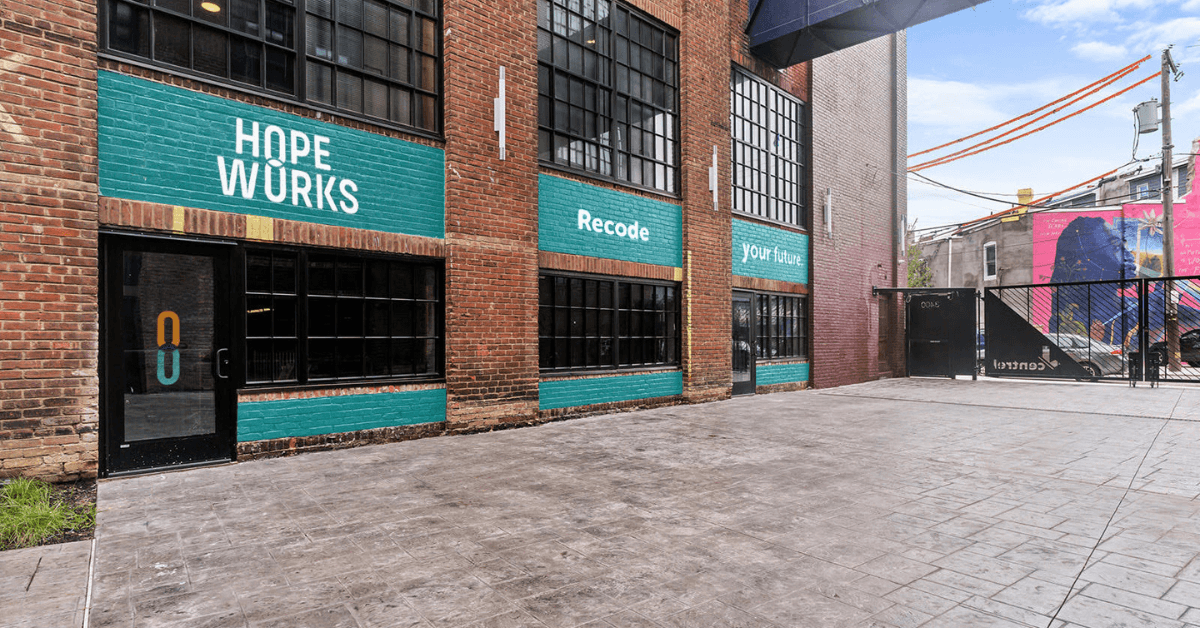Rudy J. Ellis had always planned to end up back in Philadelphia.
The 44-year-old entrepreneur founded Switchboard Live, a platform that allows brands to livestream across multiple channels at the same time, in his native Philadelphia in 2016. In its first year, Switchboard was a part of the Techstars Cloud accelerator and later raised $1.5 million in 2017 alone.
But while it seems like Ellis’ company found success shortly after its inception – and is still doing well, even during a pandemic – things didn’t start that way.
Before launching Switchboard Live, Ellis had lived all over the country, including attending college at Howard University in Washington D.C. and working for EA Sports in California before the job took him down south to Florida.
While working in Orlando as a quality assurance manager for a startup tech company, Ellis worked with D1 schools to help them live stream athletic events that weren’t being televised. This, and a conversation about faith-based streaming services during the time, led the entrepreneur to conceptualize a company where he could help multicast events and boost their audiences across multiple streaming services.
But when his full time job decided to change his role and pay him half of his original salary, Ellis knew he had to bet on his own idea.
“The reason I took the jump to entrepreneurship was I wasn’t passionate about the opportunity that was presented to me. The company I was working with, they decided to get out of live streaming,” Ellis said. “My opportunity was I could’ve stayed there and been an IT manager or I could’ve left. I chose the latter.”
When he first came up with the concept for Switchboard Live in 2013, Ellis was in his late 30s and a father of two. Compounding this was the fact that he struggled to find resources in Orlando for Black entrepreneurs.
“There was a lot of reading. A lot of YouTubing. A lot of blog hunting and just trying to figure out the things that I didn’t have because, honestly, at the time, I didn’t have any resources,” he said. “There weren’t really any accelerators. I didn’t have anyone I could turn to that could say, ‘Hey, Rudy, here’s what you need to do.’”
In 2016, Ellis returned to Philly. but it wasn’t until the following year that he met other Black founders at WeWork and began to infiltrate the tech scene in the city. One of the people he connected with was Bruce Marable, co-founder of Employee Cycle.
“We’ve actually had events at Bruce’s house where it’s six or seven of us and we’re talking about the trials and tribulations of being a black founder, and the things that we’re going through,” Ellis said. “I can’t share that with another founder that may be white because they’re totally thinking about it from a different perspective.”
Despite initial challenges, including a period of time when the company lost two co-founders and all of its eleven employees aside from Ellis, Switchboard Live has found success. Ellis attributes previous changes within the company to growing pains and a change in company culture as he shifted to managing the business from Philly. At the time, his co-founders and employees remained based in Orlando.
Even before this year’s COVID-19 pandemic forced many companies to utilize live streaming services, Switchboard had been used by NFL teams and was used for former President Barack Obama’s final State of the Union speech in 2016.
In March, the company experienced four times its usual sign ups, although Sunday has long remained Switchboard’s most popular day thanks to faith-based streaming and football, according to Ellis.
“It catapulted what we were doing previously,” Ellis said, referring to the current pandemic. “People were looking to bring live video to the forefront.” This year, the company has hired seven new full-time employees.
The stay-at-home culture fostered by the pandemic has brought forth a number of competitors for Switchboard, too. “Everybody wants to do video. Everybody wants to do what we’re doing and kind of be a part of that conversation,” Ellis said. “We have a group of guys who are driving the price down. The good thing is our whole focus has been on how you get more eyeballs. We’ve been super focused on the last mile. It’s great to be able to stream, but I want to be able to get you more viewers on your content.”
Today, the company has raised a total of $2.1 million, including $50,000 from Google for Startups Black Founders Fund earlier this year. “These types of initiatives [are] crucial to give us the opportunity to at least compete with some of our counterparts and then also help to uplift and bring other folks behind us,” he said. says.
Still, he admits his competitors have raised a significant amount of funding. According to Ellis, one company recently raised $50 million during their series A round. But even with the competition in mind, Ellis is confident that his company will see growth and success in the future.
“We don’t have a white label solution, but we have a way where if you have an existing product and want to offer multi-streaming as a service to your customers, you can use our API plug in and you can do that,” Ellis said.
Back home in Philly, Ellis says he’s worked hard to embed himself within the local tech scene so that he can be a resource to other Black entrepreneurs. He currently serves as a board member for the nonprofit Philly Startup Leaders and wants founders in the city to avoid the challenges he faced years ago when building his business. Ellis, like other entrepreneurs in the city, wants to grow his business while empowering others to do the same, knowing that more successful companies only makes Philadelphia’s tech ecosystem more vibrant.
“Our goal is to really cultivate and educate entrepreneurs to really take that [next] step, kind of where I was six years ago. I didn’t really know where to go or how to get started,” Ellis said.
This story is part of a partnership with WURD radio covering technology, business, and innovation in Philadelphia. This vital work is possible with support from the Philadelphia COVID-19 Community Information Fund, an effort by Independence Public Media Foundation (IPMF) and the Knight-Lenfest Local News Transformation Fund (Knight-Lenfest Fund).








